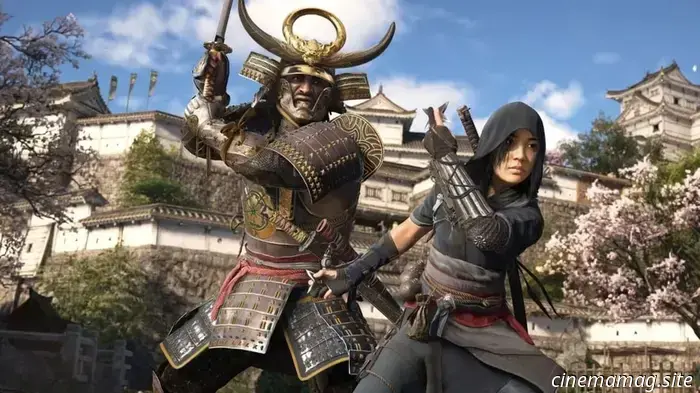
The Flight with the music of Assassin’s Creed: Shadows - Exclusive Interview
The music of the Assassin's Creed franchise has always been fundamental to its identity. We had the opportunity to speak with the composers of the latest installment, Assassin's Creed: Shadows, The Flight (Joe and Alexis), about how they became involved in the project. They also discussed the distinctions between their previous work on Odyssey and how experiences from the Horizon franchise have contributed to their growth as a duo.
You’ve previously worked on the franchise; can you share how you got connected to this particular game?
Alexis: In November 2022, we were approached by Jerome Angelot, the music supervisor we collaborated with on Shadows. He shared some details about the project and asked if we would be interested in pitching our ideas. As fans of AC, we had long been anticipating a game set in feudal Japan, so we were excited to learn that this game would be set in that era.
Joe: Our immediate response was an enthusiastic "yes." The pitching process was quite extensive, as it often is. They provided us with a wealth of information, including historical context and inspirational visuals. We composed several pieces of music and outlined our vision, which seemed to resonate well with them.
Alexis: They had specific desires regarding the sound they envisioned and certain aspects they wanted to avoid. As usual with pitching, we crafted a mini version of our interpretation to present as a potential starting point. Fortunately, they loved it, and the rest is history.
Other games like Ghost of Tsushima and Rise of The Ronin have set their narratives in feudal Japan in recent years. Did that influence your approach and preparations?
Joe: Whenever we tackle projects, we always strive to present our unique take. During the pitch phase, we focused on how we would interpret the theme. While there are many films set in that period, rather than mimic those, we decided to follow our instincts.
Alexis: They didn't want a Hollywood score layered with a few Japanese flutes, though that was their simplified wish. They aimed for traditional Japanese instruments, which is why we were invited to participate, considering our successful integration of Greek instruments in Odyssey. We played Ghost of Tsushima, but Rise of the Ronin was released while we were already deep into this project. We consciously avoided listening to other games during our pitching phase; instead, we watched films and explored Japanese traditional music.
Joe: We even drew inspiration from Wu-Tang Clan. Their use of samples always carried a Samurai vibe, which influenced us subtly, even if it may go unnoticed. We explore a lot of music together, seeking hooks that we can build on.
You've mentioned films — were there any scores that informed your work on this project?
Alexis: We're both admirers of the composer Ryuichi Sakamoto, so we explored several films he scored.
Joe: We started with Harakiri, an extraordinary film.
Alexis: Its score is remarkable and deeply tragic. This game also embraces tragedy, fittingly aligning with the title "Shadows." The narrative encompasses dark themes and suffering. Watching Harakiri was a fitting introduction for us.
Joe: Then, we examined modern films influenced by Japanese culture. We viewed Kill Bill, Seven Samurai, delving into Spaghetti Westerns, and films like Ghost Dog, one of my personal favorites. We took a broad perspective on the modern influence of Japanese culture in music.
Alexis: It’s not just about specific sounds but about merging that tradition with a modern sensibility. We aimed for a contemporary sound combined with traditional Japanese instruments.
Joe: Keeping those instruments at the core of our composition.
What was your initial approach to the score?
Joe: We typically begin by creating a theme suite for the main characters. We write a piece based loosely on a story arc, which helps us envision the music required for the game. This includes their development as characters, battle themes, and other elements.
Alexis: In Shadows, we feature two playable characters that can be swapped frequently, making them equally important. This differs from Odyssey, where players choose between Cassandra or Alexios at the outset. Our initial task, which took considerable time, was to create story suites for Naoe and Yasuke. This not only served as a launchpad for finding Shadows' sound but also ensured we had enough musical "ammunition" for the extensive score.
We aimed to have themes adaptable for various contexts for each character, possibly including a main theme and a tragic or origin theme. This way, we could reference their story arcs during cinematic segments and experiment with various ideas before committing to a particular direction.
Did you find the amount of music needed for this project different from Odyssey, given the size of the games?
Joe: There was still a significant amount of music.
Alexis: We produced about four hours of music for Odyssey and approximately three and a half hours for this installment. Both scores are comparable in length. However, the music system in Shadows is significantly different. The interactivity is






Other articles
 Vampirella #1 - Preview of the Comic Book
Dynamite Entertainment will debut its latest Vampirella series this Wednesday, and you can take a look at the first issue with the official preview below. The duo of Christopher Priest and Ergun Gunduz is back as "The Long Night" starts! Vampirella's baby son, taken by her wicked twin Draculina, has at last been returned to [...]
Vampirella #1 - Preview of the Comic Book
Dynamite Entertainment will debut its latest Vampirella series this Wednesday, and you can take a look at the first issue with the official preview below. The duo of Christopher Priest and Ergun Gunduz is back as "The Long Night" starts! Vampirella's baby son, taken by her wicked twin Draculina, has at last been returned to [...]
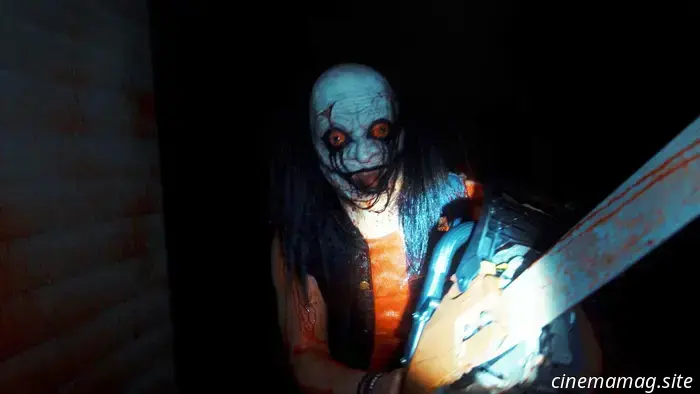 Teaser for the found footage horror film about a home invasion, The Last Cabin.
In anticipation of its digital release this April, a trailer has been released online for director Brendan Rudnicki’s found footage survival horror film, The Last Cabin. The story revolves around a film crew trapped in a secluded cabin, where they are menaced by three masked individuals. The cast features Brendan Goshay, Tatum Bates, Isabella Bobadilla, Benjamin L. Newmark, Kyree […]
Teaser for the found footage horror film about a home invasion, The Last Cabin.
In anticipation of its digital release this April, a trailer has been released online for director Brendan Rudnicki’s found footage survival horror film, The Last Cabin. The story revolves around a film crew trapped in a secluded cabin, where they are menaced by three masked individuals. The cast features Brendan Goshay, Tatum Bates, Isabella Bobadilla, Benjamin L. Newmark, Kyree […]
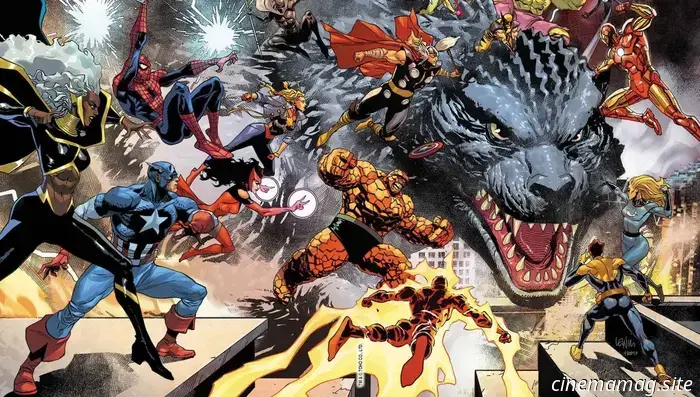 Godzilla vs. Fantastic Four #1 - Comic Book Sneak Peek
The King of the Monsters kicks off his rampage in the Marvel Universe this week with the launch of Godzilla vs. Fantastic Four #1. Check out the official preview below from Marvel Comics for a sneak peek at the issue… This marks the beginning of six thrilling, action-filled issues featuring MARVEL HEROES facing off against THE KING OF THE MONSTERS […]
Godzilla vs. Fantastic Four #1 - Comic Book Sneak Peek
The King of the Monsters kicks off his rampage in the Marvel Universe this week with the launch of Godzilla vs. Fantastic Four #1. Check out the official preview below from Marvel Comics for a sneak peek at the issue… This marks the beginning of six thrilling, action-filled issues featuring MARVEL HEROES facing off against THE KING OF THE MONSTERS […]
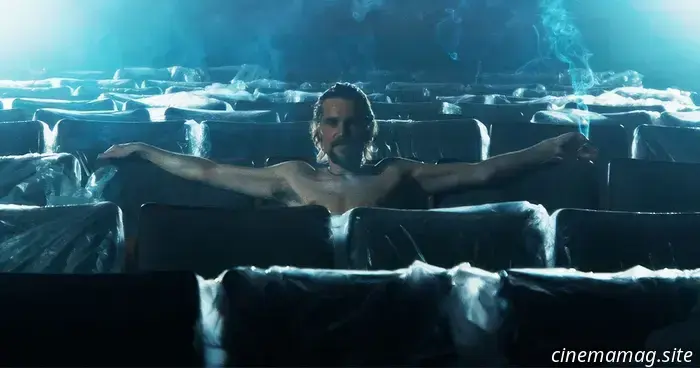 A Desert trailer hints at a nightmarish neo-noir journey on the road.
Dark Sky Films has unveiled a poster and trailer for A Desert, a neo-noir thriller directed by Joshua Erkman. The film tracks a photographer whose road trip through the American Southwest descends into a realm of unforeseen terror. The cast features David Yow, Kai Lennox, Sarah Lind, Zachary Ray Sherman, and Ashley B. Smith. Watch the […]
A Desert trailer hints at a nightmarish neo-noir journey on the road.
Dark Sky Films has unveiled a poster and trailer for A Desert, a neo-noir thriller directed by Joshua Erkman. The film tracks a photographer whose road trip through the American Southwest descends into a realm of unforeseen terror. The cast features David Yow, Kai Lennox, Sarah Lind, Zachary Ray Sherman, and Ashley B. Smith. Watch the […]
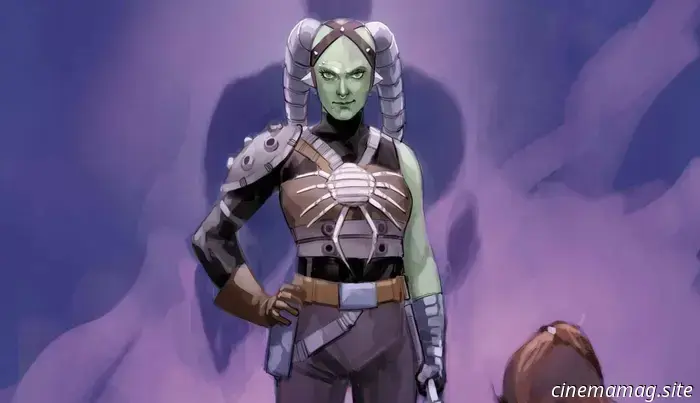 Star Wars: The High Republic – Fear of the Jedi #2 - Comic Book Sneak Peek
Star Wars: The High Republic – Fear of the Jedi #2 is set to release this Wednesday, and you can check out an exclusive sneak peek at the issue in the official preview provided by Marvel Comics… THE FIGHT FOR NABOO COMMENCES! As KEEVE TRENNIS gets ready to cross the STORMWALL, the ancient LOURNA DEE makes her return with […]
Star Wars: The High Republic – Fear of the Jedi #2 - Comic Book Sneak Peek
Star Wars: The High Republic – Fear of the Jedi #2 is set to release this Wednesday, and you can check out an exclusive sneak peek at the issue in the official preview provided by Marvel Comics… THE FIGHT FOR NABOO COMMENCES! As KEEVE TRENNIS gets ready to cross the STORMWALL, the ancient LOURNA DEE makes her return with […]
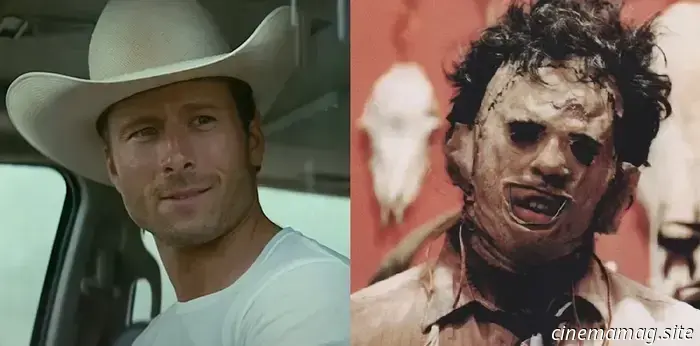 Glen Powell associated with the reboot of Texas Chainsaw Massacre.
Glen Powell gained attention in the successful sequel Top Gun: Maverick, has leveraged his significant movie-star charisma to revive the Twister franchise, and is currently involved in the production of Edgar Wright’s remake of The Running Man. Meanwhile, the rights holders for The Texas Chainsaw Massacre are eager to have him join their […]
Glen Powell associated with the reboot of Texas Chainsaw Massacre.
Glen Powell gained attention in the successful sequel Top Gun: Maverick, has leveraged his significant movie-star charisma to revive the Twister franchise, and is currently involved in the production of Edgar Wright’s remake of The Running Man. Meanwhile, the rights holders for The Texas Chainsaw Massacre are eager to have him join their […]
The Flight with the music of Assassin’s Creed: Shadows - Exclusive Interview
The music has always been central to the Assassin's Creed franchise. We spoke with the composers of the newest installment, Assassin’s Creed: Shadows, The Flight (Joe and Alexis), to learn how they initially became part of the project. They also discussed how this new entry differs from Odyssey, their previous contribution to the series, and […]
